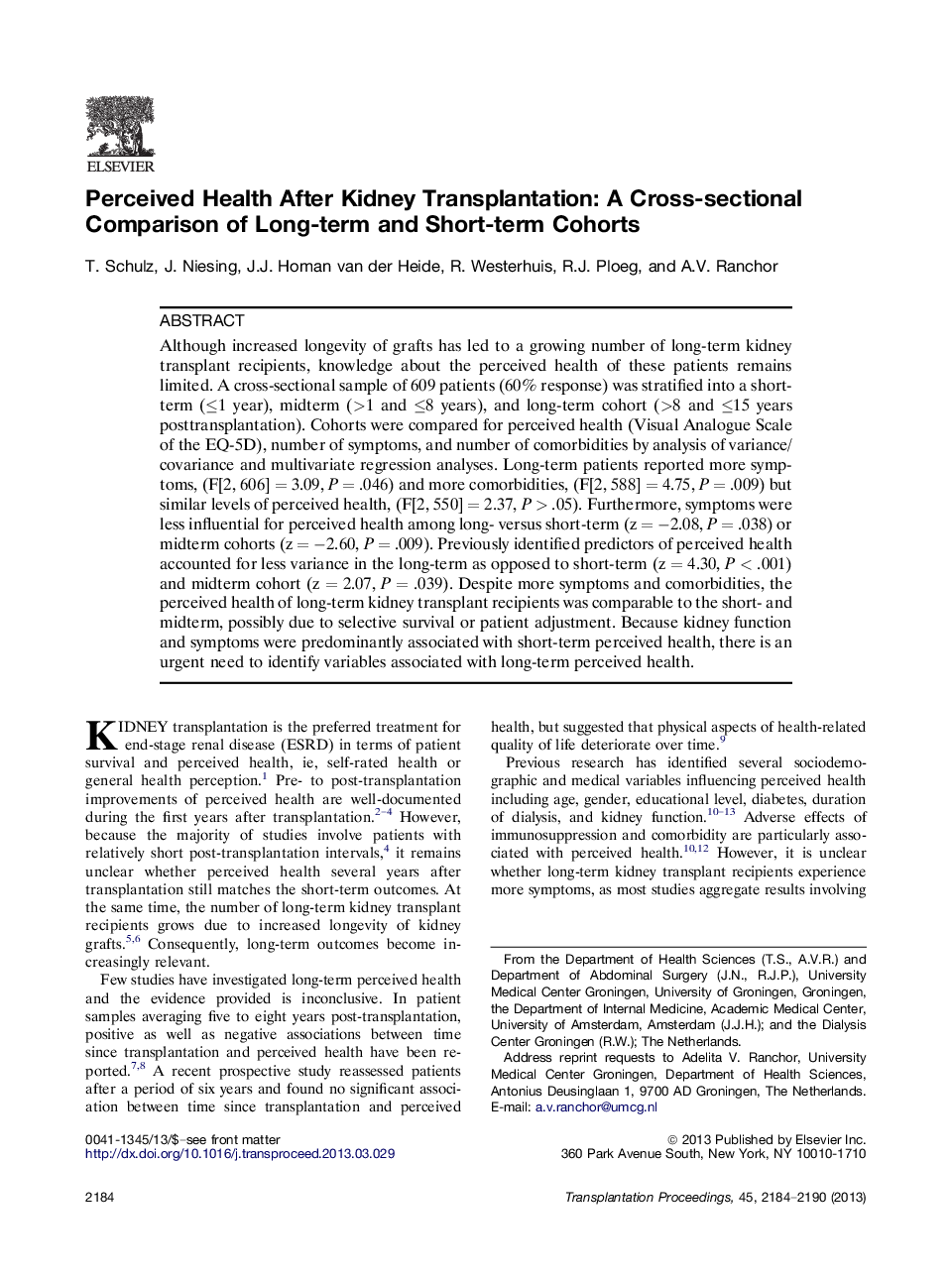| Article ID | Journal | Published Year | Pages | File Type |
|---|---|---|---|---|
| 4255650 | Transplantation Proceedings | 2013 | 7 Pages |
Although increased longevity of grafts has led to a growing number of long-term kidney transplant recipients, knowledge about the perceived health of these patients remains limited. A cross-sectional sample of 609 patients (60% response) was stratified into a short-term (≤1 year), midterm (>1 and ≤8 years), and long-term cohort (>8 and ≤15 years posttransplantation). Cohorts were compared for perceived health (Visual Analogue Scale of the EQ-5D), number of symptoms, and number of comorbidities by analysis of variance/covariance and multivariate regression analyses. Long-term patients reported more symptoms, (F[2, 606] = 3.09, P = .046) and more comorbidities, (F[2, 588] = 4.75, P = .009) but similar levels of perceived health, (F[2, 550] = 2.37, P > .05). Furthermore, symptoms were less influential for perceived health among long- versus short-term (z = −2.08, P = .038) or midterm cohorts (z = −2.60, P = .009). Previously identified predictors of perceived health accounted for less variance in the long-term as opposed to short-term (z = 4.30, P < .001) and midterm cohort (z = 2.07, P = .039). Despite more symptoms and comorbidities, the perceived health of long-term kidney transplant recipients was comparable to the short- and midterm, possibly due to selective survival or patient adjustment. Because kidney function and symptoms were predominantly associated with short-term perceived health, there is an urgent need to identify variables associated with long-term perceived health.
